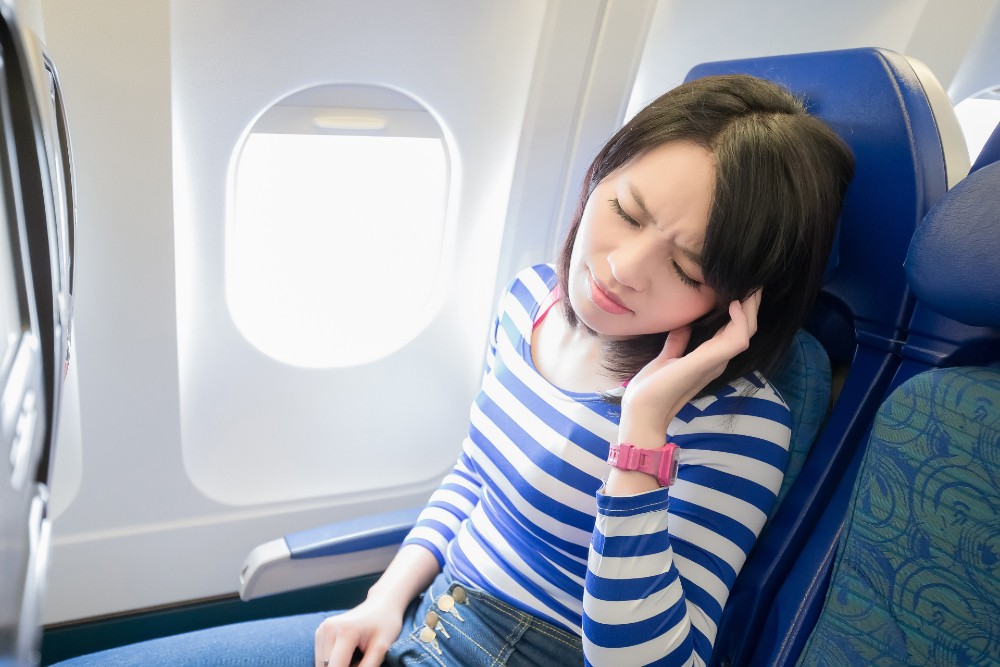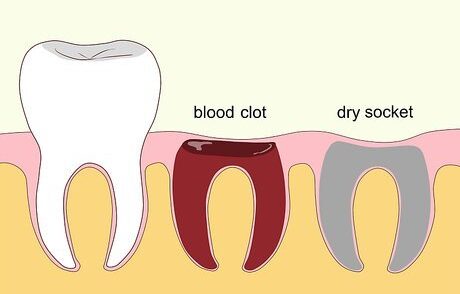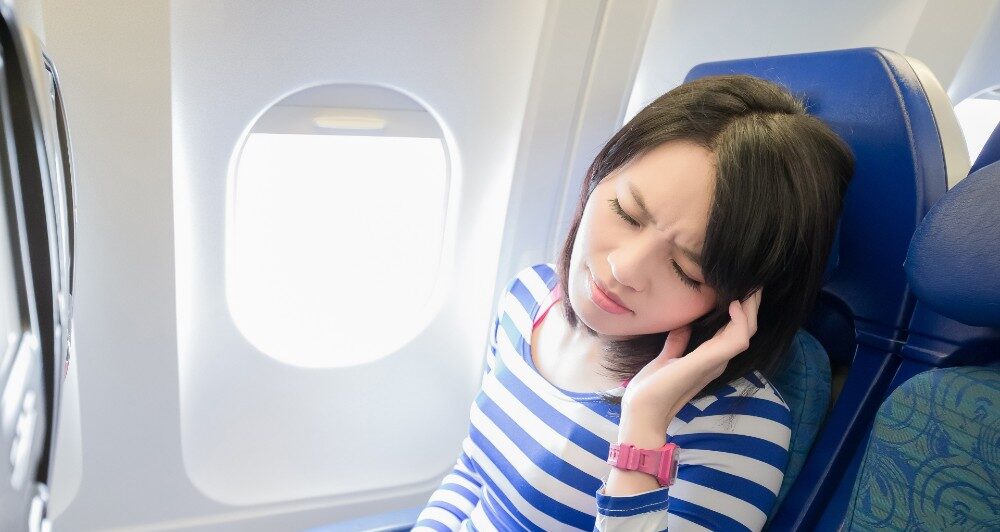
The removal of your wisdom teeth is a common and relatively simple dental procedure that millions of people under go each year. However, the pain and inconvenience that it brings after the surgery can cause anxiety to those who have to undergo it. After all, having surgery in your mouth can be a terrifying experience and it is only natural to wonder what you should or shouldn’t do afterwards.
In particular, many have asked if it is possible to fly immediately after wisdom teeth removal. In general, it is generally recommended to wait at least 24-48 hours after wisdom teeth removal before flying. Your dentist or oral surgeon may recommend waiting longer based on your specific situation and recovery progress.
The waiting period is advised as a change in air pressure during a flight can lead to discomfort, swelling, and bleeding at the surgical site. This could potentially lead to medical complications such as a dry socket and delay the recovery.
While it may be tempting to hop on a plane and head out on your next adventure, you should first understand the risks associated with flying too soon after wisdom teeth removal. In this article, we will explore the reason behind the wait and and why it is important to take certain precautions to avoid any post-operative complications.
Why Fly After 24 to 48 Hours of Healing
There are several reason why you should wait for a day or two after your wisdom teeth removal before going on a flight.
First of all, your body is in a weakened state due to the surgery as well as the stress of undergoing it. You will also experience pain, swelling, and discomfort after the procedure. Flying too soon after the surgery may increase the risk of bleeding or exacerbate the pain due to changes in air pressure. Having sufficient rest gives time for your body to rest and wound to heal.

Secondly, the 24 to 48 hours healing period also gives time for the blood clot to fully form in the socket where the removed wisdom teeth once was, thus reducing the chances of dry socket. A dry socket (also known as alveolar osteitis) is a painful medical condition that happens in approximately 5 to 8% of the patients who had their wisdom teeth removed. The condition occurs when the blood clot formed in the socket is dislodged or dissolves. This exposes the underlying bone and nerves to the harsh elements of the mouth, causing a wide range of symptoms including a persistent and intense pain, bad breath, and a foul taste in the mouth. In some cases, the dry socket becomes infected and it progresses to chronic bone infection, or osteomyelitis.
You may be interested in: Headache After Wisdom Teeth Removal. Why and How You Can Reduce It
Last but not least, it is advised that during the first few days after your wisdom teeth removal, you are able to conveniently receive medical attention in the event that you experience complications or require medical attention. After the first 48 hours, your wound would have sufficiently healed such that you are at a lower risk of medical complications.
If you are looking to fly within the first 48 hours of your wisdom teeth removal, here are the what you should consider:
- Consult your dentist first. Your dentist or oral surgeon will examine the extraction site to ensure that it is healing as it should. They can also provide you with specific instruction on caring for your wound during the flight and answer any concerns you may have.
- Prepare gauze pads. During the first 12 hours of your post-surgery, bleeding will likely continue as the wound has yet to fully close. Bite on the gauze pad (with some force) to place pressure on the wound and stop the bleeding.
- Prepare sufficient pain medication. You will likely experience some pain or discomfort during the flight. Cabin pressure as well as general anxiety during the flight can intensify any pain you are already suffering from. Adding on, you should avoid narcotic painkillers before and during the flight as it may lead to unwanted side effects including dizziness, nausea, and drowsiness.
- Request for ice packs. To reduce the swelling on your cheeks, prepare a cold pack or ask for ice packs from the flight attendants. Place it on the swollen area for approximately 10 minutes for every 2 to 3 hours. You may want to prepare a Ziploc bag beforehand so that it can be filled up with ice during the flight.
- Bring pain relievers. Make sure that you bring your over-the-counter pain medication in the event that you are experiencing pain in the extraction site during the flight.
- Stay hydrated. Staying hydrated is important for your recovery, and airplanes are known for having low humidity, which can lead to dehydration. Make sure to drink plenty of water before and during your flight.
- Request or prepare soft food. After the surgery, you should stick to a soft food diet to avoid injuring the surgical site. This means abstaining from hard, crunchy food and consuming soft and mushy food. Examples of soft food include mash potatoes, scrambled eggs, ice cream, yogurt, and soup. If you are on a long haul flight, submit a request to the airline at least a day before the flight.
- Have your clinic’s contact information. This is to ensure that you are always able to contact your clinic and seek help in the event of an emergency.
- Prepare toothbrush or mouthwash. If you are going on a long-haul flight, prepare a toothbrush or mouthwash to keep the extraction site clean during the flight.
By following these tips and the advice of your dentist or oral surgeon, you can help ensure a safer and more comfortable flying experience after wisdom teeth removal.
Precautions to Take
While it is advised to fly 24 to 48 hours after the surgery, flying after wisdom teeth removal can be safe and manageable when proper precautions are taken. Here are several things you should adhere to before a flight to minimize the chances of a complication.
- Avoid rinsing your mouth too vigorously. This can irritate the surgical site and potentially dislodge the blood clot from the socket.
- Avoid using a straw. The use of a straw can create suction in the mouth, which can dislodge the blood clot in the surgical site.
- Avoid smoking. The harmful ingredients in a cigarette can irritate the wound and slow down the recovery process. Furthermore, the continuous inhaling and exhaling of hot smoke creates suction.
- Avoid streneous exercise. Any intense exercise increases blood pressure and heart rate, and this can lead to increased bleeding from the surgical site. Furthermore, contact sport or vigorous exercise can potentially dislodge the blood clot.
- Avoid alcohol. Alcohol can interfere with the healing process and increase the risk of an infection. It also thin out the blood, causing increased bleeding.
- Take your pain medication and antibiotics. Take your painkillers and antibiotics as prescribed by your dentist to alleviate pain and reduce the risk of an infection.
- Avoid touching the extraction site. Touching the extraction site with your fingers can introduce bacteria and increase the risk of infection
Takeaway
While there are no hard and fast rules, you should always wait at least 24 hours after your wisdom teeth removal surgery to allow the initial healing process to take place. This is due to the fact that one can is at increased risk of dental complications such as bleeding or dry socket during the flight.
Also, always consult with your dentist or oral surgeon as they are able to provide personalized advice and recommendations based on the recovery of your surgical wound. While some people may be able to fly within 24 hours after their wisdom teeth removal, while others may need more time before they feel comfortable doing so. Ultimately, it is up to you to decide when you are comfortable enough to take a flight.







